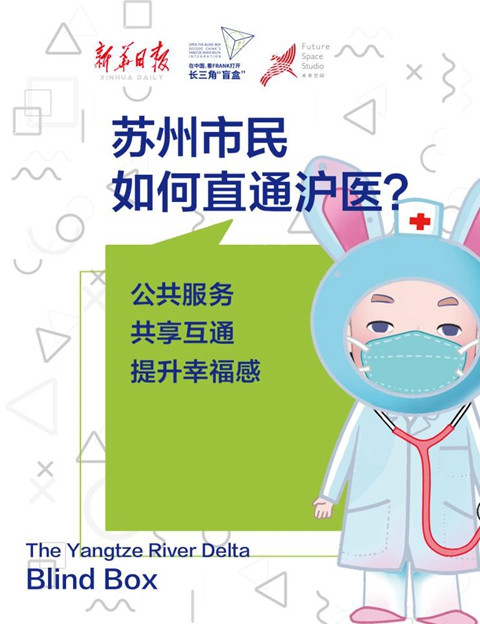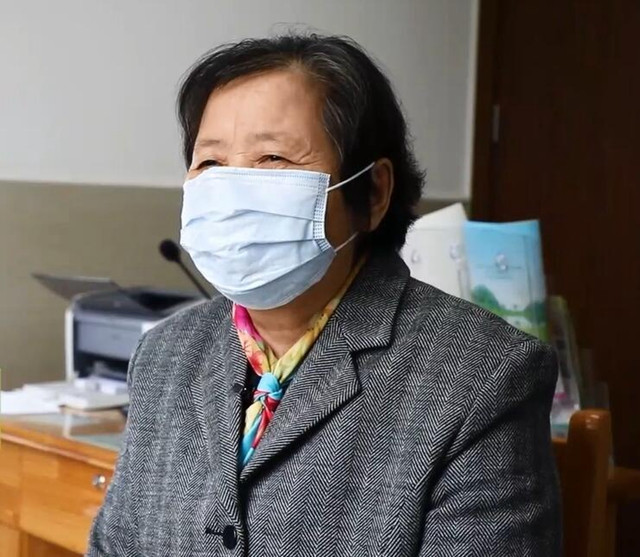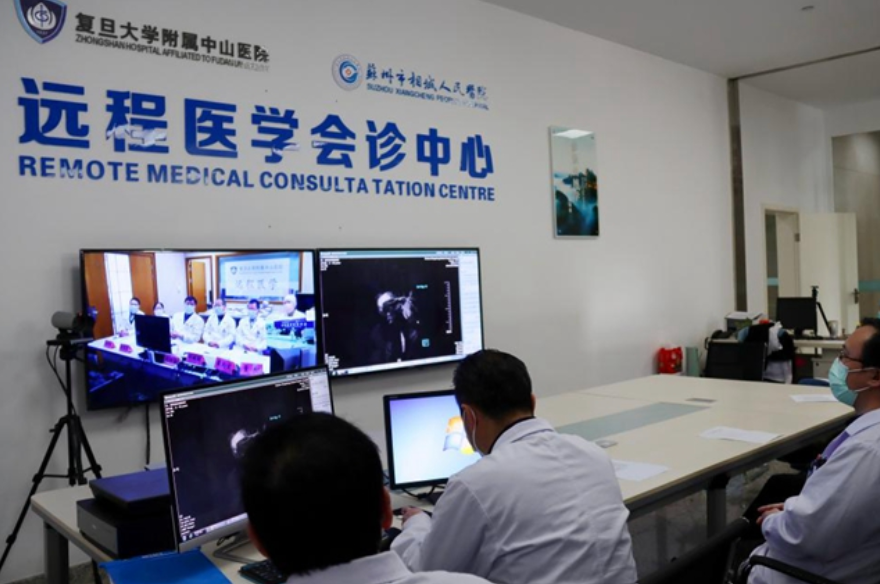
Shanghai and the provinces of Jiangsu, Zhejiang and Anhui have enjoyed geographical proximity and close contacts in the Yangtze River Delta. However, visiting a hospital in the other region to receive surgery has always been conceived as an inconvenience. This may be due to difficulties of registration, waiting for hospital bed, and settlement of medical expenses through the insurance program. What would happen if there’s no such a problem?

On August 14, Ms. Xu, a resident of Suzhou, Jiangsu Province, went to Suzhou Xiangcheng People's Hospital for a health check. Doctor Huang Tieao of the general surgery department found that Xu had thyroid nodules over 6 centimeters in size on the left and right sides of her sternum, with one near the large blood vessels.
The complexity of the condition made it tricky to have a treatment plan the hospital itself. Then it started a remote multidisciplinary consultation with doctors from the departments of thoracic surgery, thyroid surgery, and radiology from Zhongshan Hospital affiliated to Fudan University in Shanghai. With the consensus of Xu and her family, the two hospitals decided to transfer her to Shanghai to take the surgery through a “green channel.”
After arriving in Shanghai on August 25, Xu was quickly admitted to the hospital and underwent surgery. Then after two days of observation, she was allowed to be transferred back to Suzhou for continued treatment and recovery.

The fact that Suzhou residents are able to get direct access to Shanghai doctors so conveniently and quickly is due to the integration of medical treatment and healthcare in the delta as well as the easy settlement of inter-province medical expense. The direct settlement service covers 41 cities and 8,130 medical institutes in the delta. Amid new progress of regional integration, residents in the delta will enjoy more benefits from the more accessible public services across provinces in many fields, such as education, tourism, employment and entrepreneurship.
People expect the integration of public services in the delta will cover a broad range of aeras, from children’s education to elderly care, housing and employment, said Xu Qin, director of the Institute of Social Policy, Jiangsu Academy of Social Sciences, and also executive vice-president of the Institute of Regional Modernization. In other words, integration is about the mobility of population, factorsa and markets. The integration of public services is the most difficult part among six fronts. But it’s also a key indicator and final destination of the integration drive as public services are closely related to the people and their sense of well-being.
Contact us at english@jschina.com.cn








